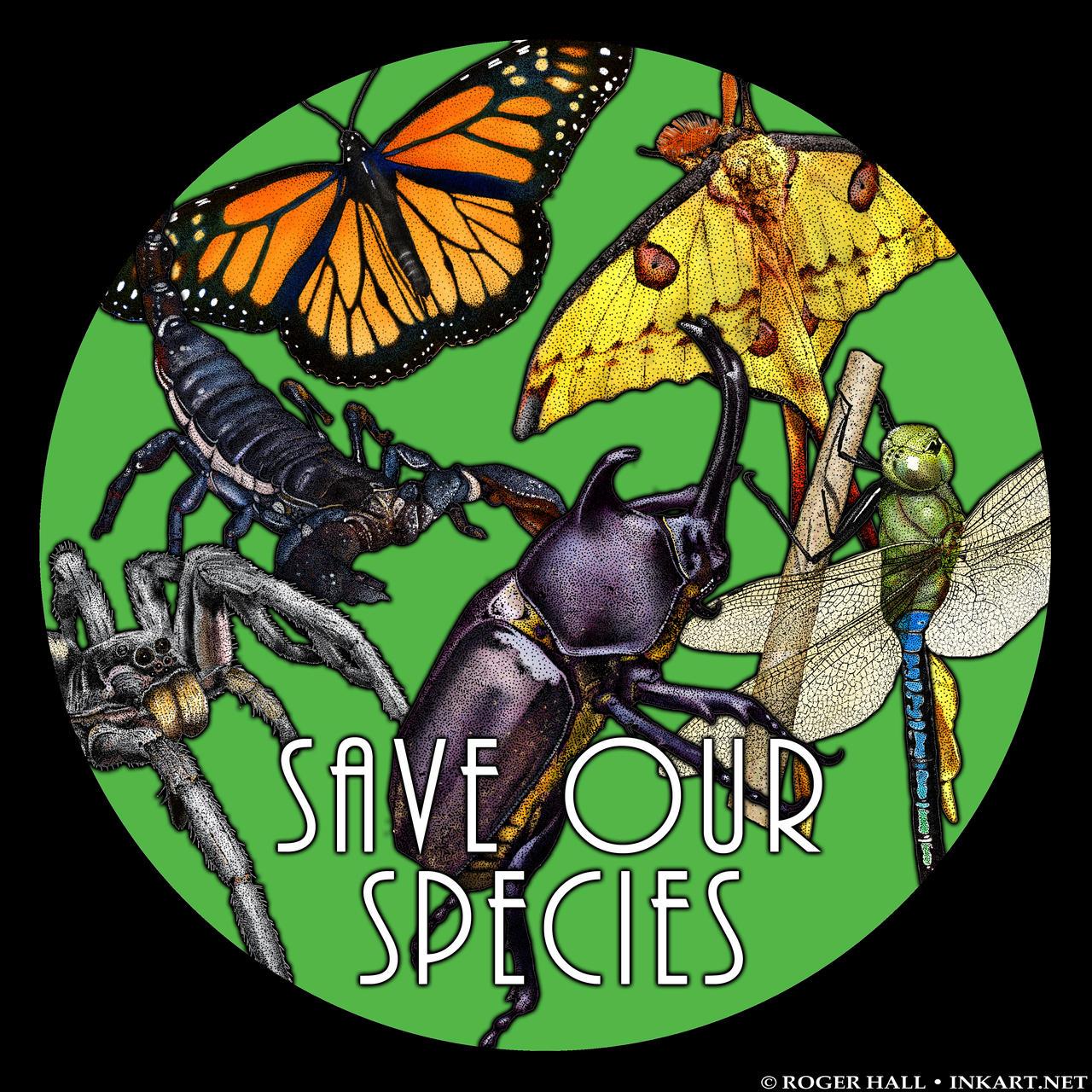Insects are the unsung heroes of our ecosystems, playing vital roles in pollination,
soil health, and the food chain. Yet, these crucial creatures are facing unprecedented
declines worldwide. This blog explores the reasons behind the decline, its
implications, and how we can work together to save these indispensable allies.
Understanding the Decline
The decline in insect populations is alarming, with studies indicating that up to 40%
of insect species are at risk of extinction in the coming decades. Several factors
contribute to this decline:
1. Habitat Loss: Urbanization, deforestation, and agricultural expansion destroy natural
habitats, leaving insects without places to live and breed.
2. Pesticides: The widespread use of pesticides in agriculture harms non-target insect
species, reducing their populations and diversity.
3. Climate Change: Altered weather patterns and rising temperatures disrupt insect life
cycles and habitats.
4. Pollution: Air, water, and soil pollution degrade insect habitats and health.
5. Invasive Species: Non-native species can outcompete, prey on, or bring diseases to
native insects.
Why Insects Matter
Insects are more than just bugs; they are essential for the balance and health of
ecosystems. Here’s why they matter:
Pollination: Insects like bees, butterflies, and beetles are primary pollinators,
essential for the reproduction of many plants, including crops.
Decomposition: Insects such as beetles and ants break down organic matter,
recycling nutrients back into the soil.
Food Source: They are a crucial part of the food web, serving as prey for birds,
amphibians, and other animals.
Pest Control: Predatory insects and parasitoids help control populations of other
pests, reducing the need for chemical pesticides.
Steps to Save Insects
Addressing the decline of insect populations requires coordinated efforts from
individuals, communities, governments, and industries. Here are some steps we can
take:
1. Promote Biodiversity: Create and maintain diverse habitats in gardens, parks, and
agricultural lands. Plant native flowering plants that provide nectar and pollen.
2. Reduce Pesticide Use: Adopt integrated pest management (IPM) practices that
minimize pesticide use and promote biological control methods.
3. Combat Climate Change: Reduce carbon footprints by using renewable energy
sources, driving less, and supporting policies aimed at mitigating climate change.
4. Support Conservation Efforts: Engage with and support organizations dedicated to
insect conservation through donations, volunteer work, and advocacy.
5. Educate and Raise Awareness: Inform others about the importance of insects and
the threats they face. Participate in citizen science projects to monitor and report on
local insect populations.
Community Actions and Personal Initiatives
Planting for Pollinators: Create insect-friendly gardens by planting a variety of
native flowers, herbs, and shrubs. Avoid using chemicals and provide habitats such as
logs, leaf litter, and undisturbed soil for nesting.
Supporting Sustainable Agriculture: Buy organic produce and support farmers
who use eco-friendly practices. These practices often involve crop rotation, reduced
pesticide use, and the maintenance of natural habitats around farmlands.
Citizen Science: Join projects like the Great Backyard Bird Count or Butterfly Count,
which help track insect populations and provide valuable data for researchers.
Policy and Advocacy
Governments play a crucial role in protecting insect populations. Advocacy for
stronger environmental policies is essential:
Habitat Protection: Advocate for the protection and restoration of natural habitats,
including forests, wetlands, and grasslands.
Regulation of Pesticides: Push for stricter regulations on pesticide use and the
promotion of safer alternatives.
Climate Action: Support policies aimed at reducing greenhouse gas emissions and
promoting sustainability.
Conclusion
Insects are integral to the health of our planet, and their decline poses a significant
threat to global biodiversity and human well-being. By understanding the causes of
this decline and taking concrete steps to mitigate them, we can help ensure that
future generations inherit a world rich in the diverse and vibrant life forms that
sustain us all. Let's act now to save our insects and, in doing so, secure the health of
our ecosystems and our future.
Save the Insects! #Blogger
Posted 2024-05-29 15:12:42

Record
Recording 00:00
Commenting has been turned off for this post.
Categories
- Sustainability
- Home
- Wellness
- Theater
- Sports
- Shopping
- Religion
- Party
- Other
- Networking
- Music
- Literature
- Art
- Health
- Gardening
- Games
- Food
- Fitness
- Film
- Drinks
- Dance
- Crafts
- Causes
Read More
SDG-12 Responsible Consumption and Production
In a world where natural resources are limited but human demands keep growing, Sustainable...
My green act
I have plant a plant each month so this month's plant
The role of physical activity
Alongside healthy eating , regular physical activity is crucial.Exercise helps in managing...
INTERNATIONAL LITERACY DAY
Hi everyone I Vaishnavi of grade 7 from jkg international school is here to share about an...
Sustainable Development
Building a Future We Can Proudly Inherit
In the race for progress, humanity has often...
×
Your daily access limit has been reached. Please try again tomorrow.
© 2026 GoSharpener Pvt.Ltd.
Refund and Cancellation policy - We do not entertain any refunds and cancellation
Refund and Cancellation policy - We do not entertain any refunds and cancellation
